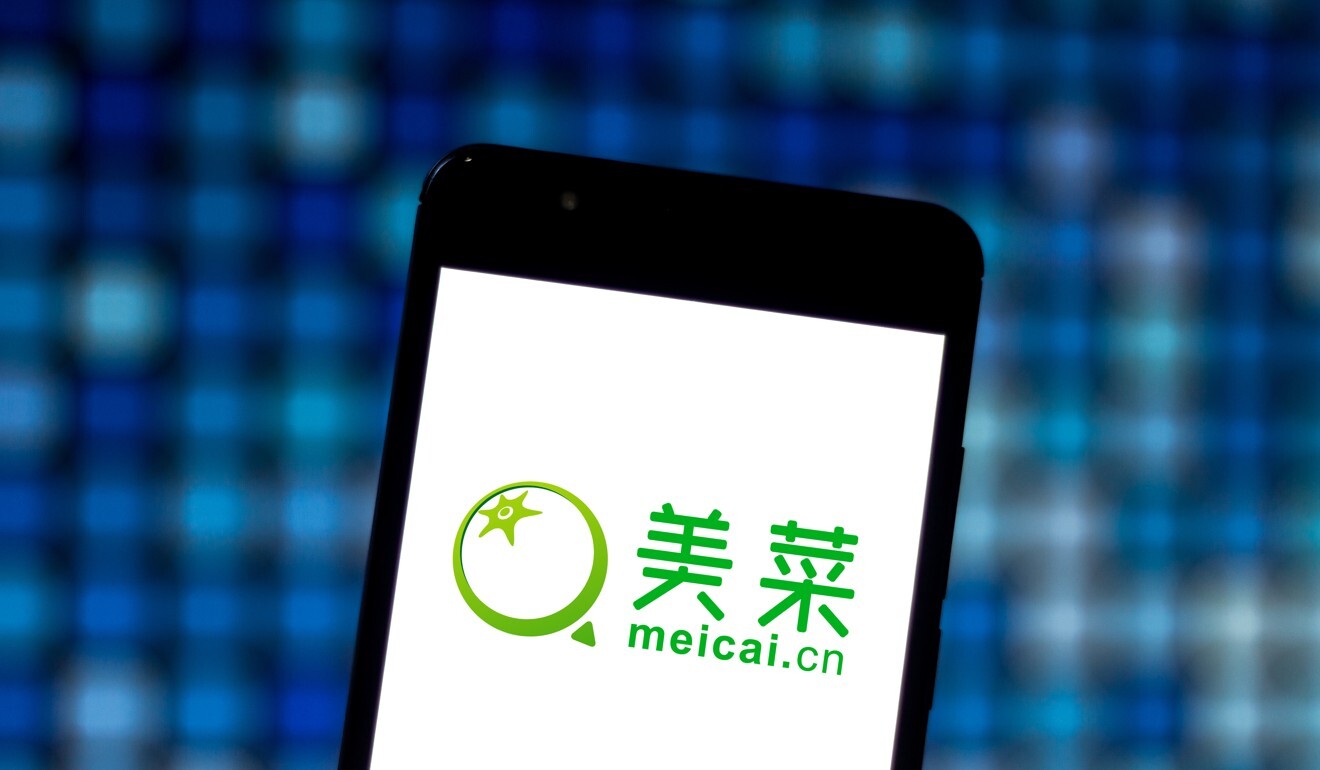
Chinese e-commerce platform Meicai becomes latest mainland firm to shelve US IPO plan as tightened scrutiny unnerves issuers
- Chinese regulators’ investigation of Didi Chuxing and other internet companies’ data collection practices has rattled potential new issuers targeting a US IPO
- Meicai, which means ‘beautiful vegetables’ in Mandarin, was aiming to raise between US$300 million and US$500 million, reports said
Meicai, an e-commerce platform that connects restaurants with suppliers of fresh produce, has become the latest company to postpone its plan for a US listing, according to people familiar with the situation.
While the Beijing-based company, which was valued at about US$6.4 billion after its last funding round in September 2018, has not yet publicly filed its draft prospectus, it made a confidential filing to the US regulator in May.
The company will now withhold further filing and suspend marketing, the people said.

It is the latest Chinese tech company to postpone its US initial public offering plans. LinkDoc Technology, a medical data solutions provider and Ximalaya, China’s biggest podcast platform, are among the companies that have shelved their listing plans, according to media reports.
Meicai, which means “beautiful vegetables” in Mandarin, was aiming to raise between US$300 million and US$500 million, reports said.
For companies that have started their offshore listing application process in Hong Kong and the US, they are likely to review their own internal data governance framework to check if their existing practices comply with Chinese laws, said Jacky Lai, a partner at accounting firm EY in Hong Kong.
“These companies would likely have to include the risk of a potential non-compliance with China’s cybersecurity rules under the ‘risk factors’ section of the prospectus,” he said. This could potentially lengthen their IPO vetting process.
If Meicai had pressed on with its listing, it would have been the third online food service platform to list on US exchanges in recent months. It was working with banks including Morgan Stanley, Bank of America on the IPO. These banks were not immediately available for comment on Friday.

10:19
China’s e-commerce and live-streaming booms are opportunities for private equity, Carlyle Group says
China’s on-demand grocery e-commerce market is extremely competitive, with many players finding it hard to turn a profit. A prolonged cut-off from the US capital markets could deal a blow to these start-ups, as the more stringent listing requirement of the Hong Kong stock exchange could mean that these companies are ineligible for a listing in the city, these people said.
In Hong Kong, companies either have to generate an aggregate net profit of at least HK$30 million (US$3.9 million) over the two preceding years or have a minimum market capitalisation of HK$2 billion at the time of listing and revenue of at least HK$500 million to qualify for the Hong Kong stock exchange’s main board, according to listing rules.
By comparison, New York Stock Exchange rules require companies to have a smaller market capitalisation threshold of US$200 million (about HK$1.5 billion), or an adjusted pre-tax profit of US$2 million in the past two years, rather than a net profit to list.

